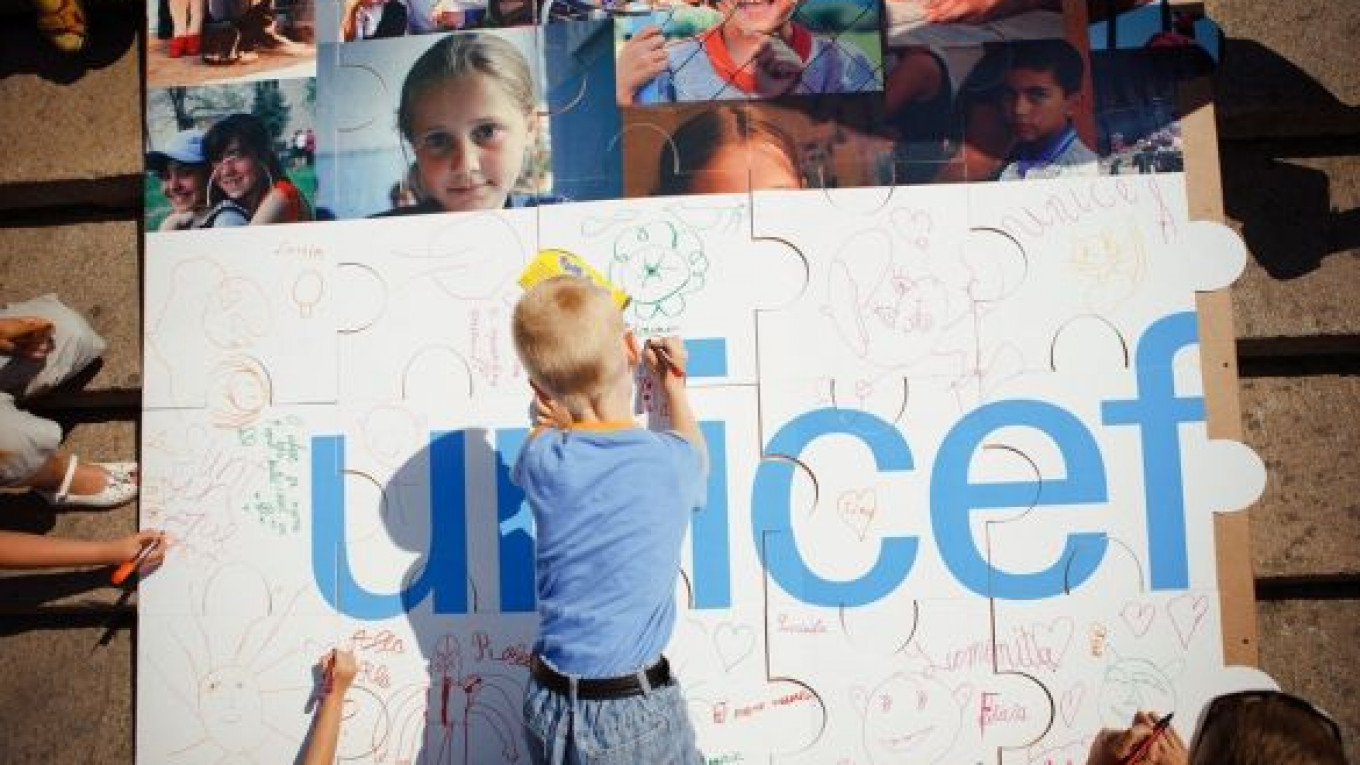The Foreign Ministry said Tuesday that it had given UNICEF, the United Nations children’s agency, until the end of the year to wrap up its existing programs in Russia.
The announcement about the deadline seemed to confirm fears that the agency, whose main goals in Russia are to improve preventive health care, reduce the number of orphans and promote children’s rights, may soon be left without an office in the country.
But UNICEF spokesman John Budd said Tuesday that talks were ongoing with the Foreign Ministry about a new arrangement under which the agency might continue to have a physical presence in Russia. “They haven’t ended the negotiations,” he said by telephone.
The Foreign Ministry said Russia no longer needed the support of UN organizations like UNICEF because it had grown from being an aid recipient to a donor country since the Soviet collapse and could finance its own needs.
That was also one reason it gave for ordering U.S.-bankrolled USAID to leave by Oct. 1, in addition to what Russia said was political meddling.
UNICEF, which closed its Russian office at the end of last year, has been given until Dec. 31 to wrap up residual programs, the ministry said.
Budd said there were two such programs, one for children with disabilities and another aimed at youth participation, and both would close by year’s end.
“The closure of the UNICEF office in Russia does not mean the end of the fund’s interaction with our country,” the Foreign Ministry said in a statement carried by Interfax. “We’re talking about taking relations with UNICEF to a new level where Russia, as a member of the Group of Eight and the Group of 20, stands as an equal partner of the fund and donates to projects that promote children’s rights in needy countries.”
The ministry said the Russian government had contributed $6.5 million to UNICEF from 2009 to 2012, including $1 million to immunize Tajik children against diphtheria and $500,000 for textbooks to teach the Russian language to children in Kyrgyzstan.
But human rights veteran Lyudmila Alexeyeva said she feared society would suffer after the exit of foreign organizations like UNICEF and USAID. “These organizations invested money in places in Russia where our government had no desire to invest: in science, education, the arts and civil society. Now they are all being shut out,” she said, Interfax reported.
A Message from The Moscow Times:
Dear readers,
We are facing unprecedented challenges. Russia's Prosecutor General's Office has designated The Moscow Times as an "undesirable" organization, criminalizing our work and putting our staff at risk of prosecution. This follows our earlier unjust labeling as a "foreign agent."
These actions are direct attempts to silence independent journalism in Russia. The authorities claim our work "discredits the decisions of the Russian leadership." We see things differently: we strive to provide accurate, unbiased reporting on Russia.
We, the journalists of The Moscow Times, refuse to be silenced. But to continue our work, we need your help.
Your support, no matter how small, makes a world of difference. If you can, please support us monthly starting from just $2. It's quick to set up, and every contribution makes a significant impact.
By supporting The Moscow Times, you're defending open, independent journalism in the face of repression. Thank you for standing with us.
Remind me later.






